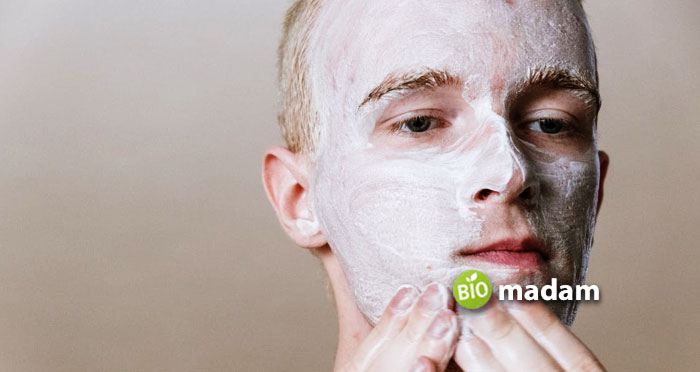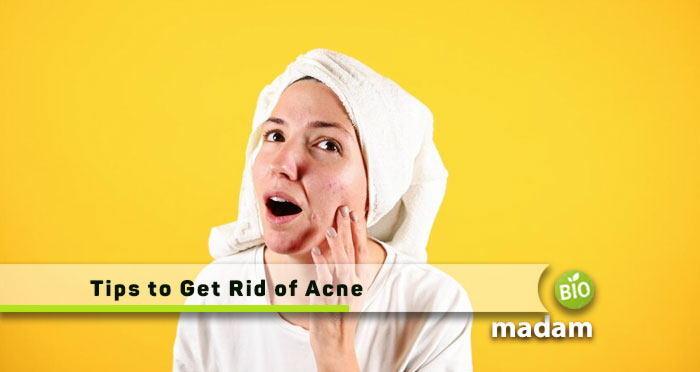Most people think of acne as a problem that only teenagers have to worry about. But the truth is, many adults also suffer from acne, often well into their thirties or forties. Acne can be embarrassing and frustrating, and it can make you feel self-conscious and insecure.
There are many things you can do to help keep your skin free of blemishes and breakouts, so let’s look at seven tips from the experts on how to get rid of acne.
Cleanse Twice Daily

Cleansing your skin twice a day is important for removing dirt, oil, and bacteria from your face. Use lukewarm water and a mild cleanser that won’t irritate your skin. Avoid harsh scrubbing, as this can irritate your skin and worsen acne.
Additionally, avoid cleansers that contain alcohol, as this can be too drying for your skin. And for all the tips and tricks for around the mouth acne, as these can be particularly challenging to keep clean, try using a gentle cleanser for that area. You can also try to identify any potential triggers, such as certain lip balms or makeup that may clog pores and lead to breakouts of this painful and frustrating acne.
Exfoliate Regularly
Of course, exfoliating your skin regularly helps remove dead skin cells and other debris from the surface of your skin. However, you should use an exfoliating scrub or product once or twice per week as over-exfoliation can strip away essential oils and cause further irritation. Always use a gentle exfoliant, as harsh scrubs can be too abrasive for your skin. The best would be to choose the one formulated for acne-prone skin and make sure to use it with a light hand.
Additionally, use a gentle circular motion when exfoliating, as this helps to remove dirt and oil from your pores more effectively.
Moisturize
Furthermore, it’s important to follow up any cleansing routine with a moisturizer. Oily skin is not an excuse to skip this step as it can help keep your skin looking healthy and balanced, while also helping reduce breakouts. Use a lightweight moisturizer that won’t clog pores and can help reduce sebum production. Look for ingredients like hyaluronic acid and niacinamide, as these have been proven to be effective at reducing oiliness without irritating the skin.
Additionally, consider moisturizers labeled non-comedogenic as these are formulated to not cause breakouts.
Consider Prescription Medication
If over-the-counter treatments aren’t working to clear up your acne, it may be a good idea to speak to a dermatologist about getting a prescription medication. Using acne treatments can also help keep your skin clear and blemish-free, can help reduce inflammation, kill bacteria, and promote skin healing.
Therefore, look for products that contain benzoyl peroxide or salicylic acid as these are both proven to be effective at treating mild. Many of these are available as topical creams or gels that you can apply directly to the affected areas and there are even oral medications available.
Use a Spot Treatment
Spot treatments are another way to help treat acne and reduce breakouts. These products often contain benzoyl peroxide or salicylic acid and can be used on the affected area for up to four hours before rinsing off. Spot treatments can be especially helpful for those with large and painful breakouts, as these products can help reduce inflammation and redness.
On the other hand, if you suffer from cystic acne, spot treatments may not be as effective and a visit to your dermatologist may be necessary.
Limit Sun Exposure
In addition to the other tips, it’s also important to limit sun exposure when treating acne-prone skin. UV rays can damage skin cells and lead to further inflammation, so try not to spend too much time in direct sunlight. Of course, use a broad-spectrum sunscreen with SPF 30 or higher and reapply it every two hours for optimal protection.
Additionally, try to wear a hat or stay in the shade, as this can help reduce your exposure. As for the solariums, it is not recommended if you have acne-prone skin, as this can worsen the condition.
Be Mindful of your Diet
Finally, diet plays a role in acne, so be mindful of what you’re eating and drinking. Foods high in calories, refined carbohydrates and sugar, such as white bread and pasta, can cause spikes in blood sugar and increase sebum production, leading to more breakouts.
On the other hand, eating a balanced diet with plenty of fresh fruits and vegetables can help give your skin the nutrients it needs to maintain its health. Additionally, drink lots of water throughout the day to stay hydrated and flush out toxins from your body.

Even though there is no one-size-fits-all solution when it comes to acne, following these seven tips can help you reduce and manage breakouts. By exfoliating regularly, moisturizing, using a spot treatment, and being mindful of your diet, you can help keep your skin clear and blemish-free.
Additionally, if over-the-counter treatments aren’t working, it may be a good idea to speak to a dermatologist about getting a prescription medication.

Hi, they call me Jenna, and I am also known for achieving a gold medal during my Ph.D. in science life. I always had a dream to educate people through my utmost writing hobby. So, I chose this blogging path, and Biomadam gave me this opportunity to present for them. I now stand to entertain you. Continue reading my articles & discuss if you’ve any confusion through the comment section below.

